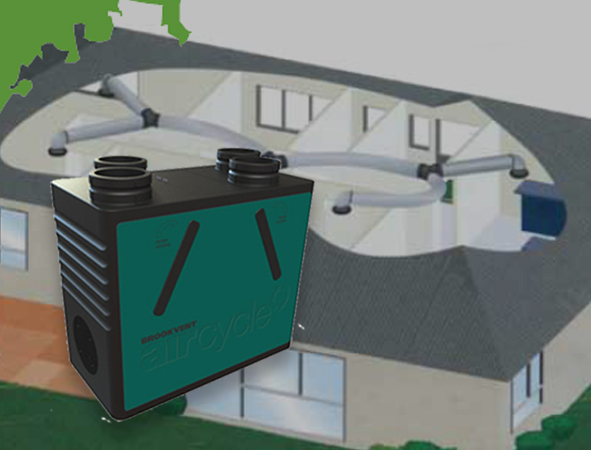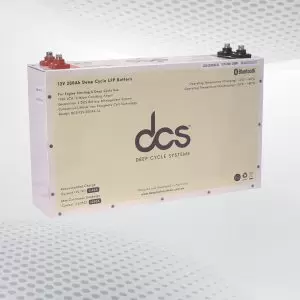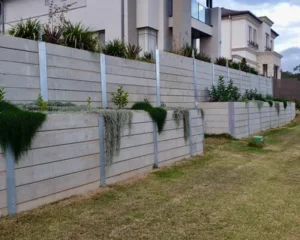Indoor air quality pertains to the air condition within buildings and structures, influencing the health and comfort of occupants. Pollutants, humidity levels, and ventilation significantly impact this quality. Poor indoor air can lead to health issues ranging from minor irritations to severe respiratory conditions. Effective indoor air quality management is essential for maintaining a healthy living space. Suitable Hvac systems are crucial in controlling temperature, ventilation, and filtration. Consequently, selecting the right Hvac-system tailored to the environment’s needs can greatly enhance indoor air quality, ensuring a more comfortable and healthier atmosphere for all occupants.
Comprehending Hvac-Systems
Hvac-systems are designed to regulate indoor climate by integrating heating, ventilation, and air conditioning functions. These systems consist of air filters, ducts, and vents, each playing a role in maintaining air quality. Air filters capture airborne particles, preventing them from circulating indoors, while ducts and vents distribute conditioned air throughout the space. Efficient Hvac-systems ensure a balanced indoor environment by maintaining consistent temperature and airflow. Understanding the roles of these components allows for better system management, thereby improving indoor air quality. Properly functioning Hvac-systems provide comfort and contribute to a healthier indoor atmosphere by reducing contaminants and regulating conditions.
Selecting Appropriate Filters
Filters are integral to an Hvac-system’s performance, capturing dust, pollen, and other airborne particles. Different filters include HEPA, pleated, and electrostatic, each serving specific needs based on factors like allergen levels or the presence of pets. HEPA filters are highly effective at trapping small particles, making them ideal for environments requiring stringent air quality standards. Pleated filters balance efficiency and cost, while electrostatic filters use static electricity to attract particles, providing a reusable option. Choosing the right filter involves assessing the specific requirements of the indoor space and the existing air quality concerns. Proper selection can greatly influence the efficiency of the Hvac-system and the overall air quality within the building.
Enhancing Ventilation
Hvac-systems can significantly improve ventilation by ensuring proper air exchange between indoor and outdoor environments. This process helps to reduce the concentration of pollutants and ensures a supply of fresh air. Effective ventilation can be achieved by adjusting system settings to optimise airflow, using fans and vents strategically, and ensuring that windows and doors are utilised appropriately. Additionally, modern Hvac-systems may feature advanced ventilation controls that automatically adjust based on indoor air quality levels, further enhancing the system’s ability to maintain a healthy environment. Ensuring the Hvac-system is well-maintained and free of obstructions is also crucial for maximising its ventilation capabilities.
Managing Humidity Levels
Humidity levels can have a profound impact on indoor air quality. Excess humidity fosters mould growth, while insufficient humidity leads to dry skin and respiratory discomfort. Hvac-systems play a pivotal role in regulating these levels by adjusting moisture content in the air. Many systems are equipped with built-in humidifiers and dehumidifiers, which can be tailored to suit specific climatic conditions and individual comfort preferences. The precise control of humidity enhances air quality and contributes to the longevity of the building’s structure and furnishings. Proper management involves regular monitoring and adjustments, ensuring an optimal balance.
Integrating Air Purifiers
Air purifiers, when incorporated into Hvac-systems, can greatly enhance air quality by targeting pollutants that standard filters might miss. These devices utilise various technologies, such as UV light, activated carbon, and ionisation, to remove contaminants and allergens from the air. UV light cleaners eliminate bacteria and viruses, while activated carbon filters absorb odours and volatile organic compounds. Ionisation technology charges particles, causing them to cluster and become easier to filter out. By addressing a wider range of pollutants, air purifiers help create a cleaner indoor environment, reducing the likelihood of respiratory issues and enhancing overall comfort.
The Importance of Investing In the Appropriate Hvac System for Indoor Air Health
Choosing the right Hvac-system is crucial for maintaining a comfortable and healthy indoor environment. It plays a key role in regulating air quality by controlling ventilation, filtration, and humidity. Proper air circulation ensures that pollutants, dust, and allergens are effectively filtered out, while the right humidity levels prevent issues like mould growth or excessive dryness. A well-designed system can also ensure consistent temperatures, making indoor spaces more pleasant and conducive to daily activities.
An appropriately selected Hvac-system can directly impact the overall energy efficiency of a building. When tailored to the structure’s specific needs, it works efficiently to reduce the need for excessive energy consumption. By properly managing airflow and temperature control, the system minimises waste and enhances the overall comfort of the living or working space. An energy-efficient Hvac system reduces long-term operational costs, significantly saving utility bills.
Moreover, investing in a suitable Hvac-system can positively impact the environment. By reducing energy consumption, it lowers a building’s carbon footprint, contributing to more sustainable living practices. The right system boosts indoor air quality and ensures that energy use is optimised, supporting economic and environmental goals in the long run.
Routine Maintenance
Routine maintenance ensures your Hvac-system works efficiently, providing better air quality throughout your space.
Regular Air Filter Replacement
Replacing air filters frequently ensures that your Hvac-system effectively traps dust, allergens, and pollutants, improving air quality.
Clean the Ductwork
Cleaning the ducts regularly prevents dust and debris build-up, which can circulate harmful particles throughout your home or office.
Check for Mold Growth
Mould can thrive in damp areas of your Hvac-system, so regular inspection and cleaning help prevent mould from affecting indoor air quality.
Inspect and Seal Leaks
Air leaks in the Hvac-system can lead to inefficient airflow and let contaminants into the system, affecting air quality. Proper sealing can resolve this issue.
Schedule Professional Tune-ups
A professional HVAC tune-up can address small issues before they become larger problems, ensuring the system runs smoothly and efficiently and enhancing air quality.
Energy Efficiency Considerations
Energy efficiency is crucial in maintaining operational costs and indoor air quality. Efficient Hvac-systems consume less energy, which reduces their environmental impact and lowers utility expenses. Key measures to improve efficiency include sealing ducts to prevent air leaks, ensuring proper insulation to maintain temperature control, and utilising programmable thermostats for optimal performance. Regular maintenance, such as cleaning and replacing filters, ensures the system operates efficiently. These steps help reduce the strain on the Hvac-system, extending its lifespan and maintaining consistent air quality levels. Modern, energy-efficient Hvac-systems often incorporate advanced technologies that enhance performance while minimising energy consumption.
Modernizing Your Hvac-System
Upgrading a modern Hvac-system offers enhanced air quality and energy efficiency benefits. Advanced systems provide superior temperature control, improved filtration options, and features designed to conserve energy. Indicators of the need for an upgrade include increasing energy bills, frequent repairs, and uneven air distribution. Modern HVAC technologies incorporate smart thermostats, variable speed motors, and advanced filtration mechanisms that remove a wider range of pollutants. These upgrades not only improve air quality but also reduce operational costs. Investing in the latest HVAC technology can lead to a more comfortable and healthier indoor environment, thanks to better performance and more effective contaminant removal.
Tracking Indoor Air Quality
Keeping an eye on indoor air quality is crucial for identifying issues and ensuring a healthy atmosphere. Tools, such as air quality monitors and carbon dioxide detectors, are available to measure various parameters, including particulate matter, humidity, and gas levels. By interpreting the data collected from these devices, one can identify trends and make informed decisions on adjusting the Hvac-system or implementing other corrective measures. Tracking these parameters regularly helps promptly address any fluctuations or deteriorations in air quality and maintain a consistently healthy environment. Additionally, many modern Hvac-systems come with built-in air quality sensors that provide real-time data, further aiding in effectively managing indoor air quality.
Minimising Indoor Pollutants
Indoor pollutants stem from various sources, such as cleaning agents, paints, and cooking emissions. Mitigating these pollutants is essential for enhancing indoor air quality. Utilising natural cleaning products can significantly reduce chemical residues in the air. Proper ventilation during activities like painting or cooking helps dissipate harmful fumes. Maintaining a dust-free environment through regular cleaning prevents the accumulation of allergens and other particulates. Additionally, ensuring that Hvac-systems are well-calibrated can aid in reducing the indoor concentration of pollutants. The use of indoor plants, known for their air-purifying qualities, can also contribute to a healthier atmosphere.
Seeking Professional Advice
When indoor air quality remains suboptimal despite implementing various measures, enlisting the expertise of a professional is a prudent step. Specialists in Hvac-systems and indoor air quality can conduct comprehensive evaluations to pinpoint underlying issues that might not be immediately apparent. This process often includes examining the entire HVAC -system, checking for hidden blockages, inspecting ducts for leaks, and assessing the efficiency of current filtration methods.
Professionals use advanced diagnostic tools to measure air quality parameters precisely, enabling a detailed understanding of pollutant sources and concentrations. They can also recommend upgrades or modifications tailored to the building’s specific needs, such as enhanced filtration systems or the installation of air purifiers. Additionally, professionals can provide valuable advice on optimising HVAC settings and maintenance schedules to sustain improved air quality over time.
Conclusion
Improving indoor air quality is essential for creating a healthier and more comfortable living or working environment. The right Hvac system is critical in maintaining clean, breathable air by effectively filtering pollutants and regulating ventilation. Regular maintenance, choosing the right filters, and ensuring proper system sizing are key factors in optimising HVAC performance for air quality. Investing in an efficient Hvac-system tailored to your needs can significantly reduce allergens, dust, and harmful particles, ensuring a safe indoor atmosphere for everyone.
FAQ’s
How can an Hvac system improve indoor air quality?
An Hvac system improves indoor air quality by filtering dust, allergens, and pollutants from the air. High-quality filters like HEPA can trap microscopic particles, and proper ventilation ensures a continuous flow of fresh air, reducing indoor contaminants and maintaining a comfortable environment.
What types of filters are best for improving air quality?
HEPA filters are among the best for improving air quality and capturing fine particles, including pollen, dust, and pet dander. Activated carbon filters can help remove odours and volatile organic compounds (VOCs), and UV filters can eliminate bacteria and viruses, contributing to cleaner air.
How often should I replace the filters in my Hvac-system?
It’s recommended to replace HVAC filters every 1-3 months, depending on the filter type and usage. If you have pets or suffer from allergies, you may need to replace filters more frequently to maintain optimal air quality. Always follow the manufacturer’s recommendations.
Can an Hvac-system help with humidity control?
Many modern Hvac-systems come with built-in humidifiers or dehumidifiers that help regulate indoor humidity levels. Maintaining the right humidity (30-50%) can prevent mould growth, reduce dust mites, and promote overall comfort while enhancing air quality.
How do I know if my Hvac-system is improving air quality?
You can measure indoor air quality by checking for common signs like reduced allergies, fewer respiratory issues, or less dust accumulation. Investing in an air quality monitor can provide real-time readings of particulate matter and VOCs, helping you assess the effectiveness of your Hvac-system.
| Related Business Listings |
| Contact Directory |
| Local Business Profiles |




